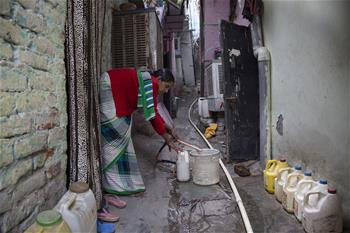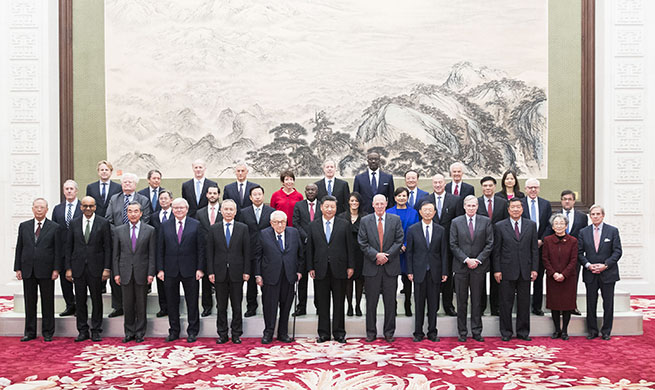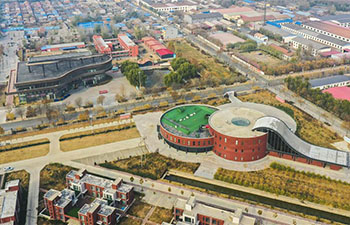CAPE TOWN, Nov. 23 (Xinhua) -- The South African government on Saturday reaffirmed its commitment to "much needed economic reforms" in order to revive the country's economic growth following a downgrade by S&P Global Ratings.
Furthermore, the government reiterates that the growth in the public sector wage bill needs to be addressed in order to reduce the debt burden, the National Treasury said in a statement.
The government, labor, business and civil society need to work hand-in-hand as difficult decisions that imply short-term costs for the economy and fiscus need to be made in order to turn the tide around, said the statement.
This came after S&P decided on Friday evening to revise Souh Africa's outlook from stable to negative.
The agency affirmed South Africa's long term foreign currency debt rating at "BB" and local currency debt rating at "BB+".
But S&P refrained from downgrading the country further into junk.
The agency said the rating was constrained by South Africa's low GDP per capita growth, weak economic expansion, a large and rising government debt burden, and sizable contingent liabilities primarily tied to debt-laden power utility Eskom.
"The ratings are supported by the country's monetary flexibility, well-capitalized and regulated financial sector, and deep capital markets. South Africa also has moderate external debt, in particular low levels of external debt denominated in foreign currency," the agency said.
The outlook revision indicates that South Africa's debt metrics are rapidly worsening as a result of the country's very low GDP growth and high fiscal deficits, S&P said in a statement.
S&P stated that unless the South African government takes measures to control the fiscal deficit and fast track the implementation of reforms, debt is unlikely to stabilize within S&P's three-year forecast period.
South Africa's debt-to-GDP ratio, rose to 61 percent from 50.6 percent two years ago and is expected to grow to above 71 percent of GDP by 2022.
S&P warned that it may lower South Africa's rating if it observed continued fiscal deterioration due to higher pressure on spending, rising interest costs, or the crystallization of contingent liabilities related to the state-owned enterprises, especially Eskom, the country's major electricity provider.
The South African government fully recognizes S&P's assessment of the challenges and opportunities which the country faces in the immediate to long-term, the National Treasury said in its statement.
The government remains committed to placing public finances on a sustainable path while aiming for inclusive economic growth, the Treasury said.
It's the second time within one month that South Africa has been downgraded.
On November 1, international rating agency Moody's also downgraded South Africa's credit rating outlook from "stable" to "negative."
The downgrade was seen as the final step before Moody's strips South Africa of its "investment grade" Baa3 long-term foreign-currency and local-currency issuer rating, which will leave it at "junk."
Moody's is the only rating agency that keeps South Africa's credit rating at "investment grade."
In 2017, both S&P and Fitch downgraded the country's credit rating to "junk status".













